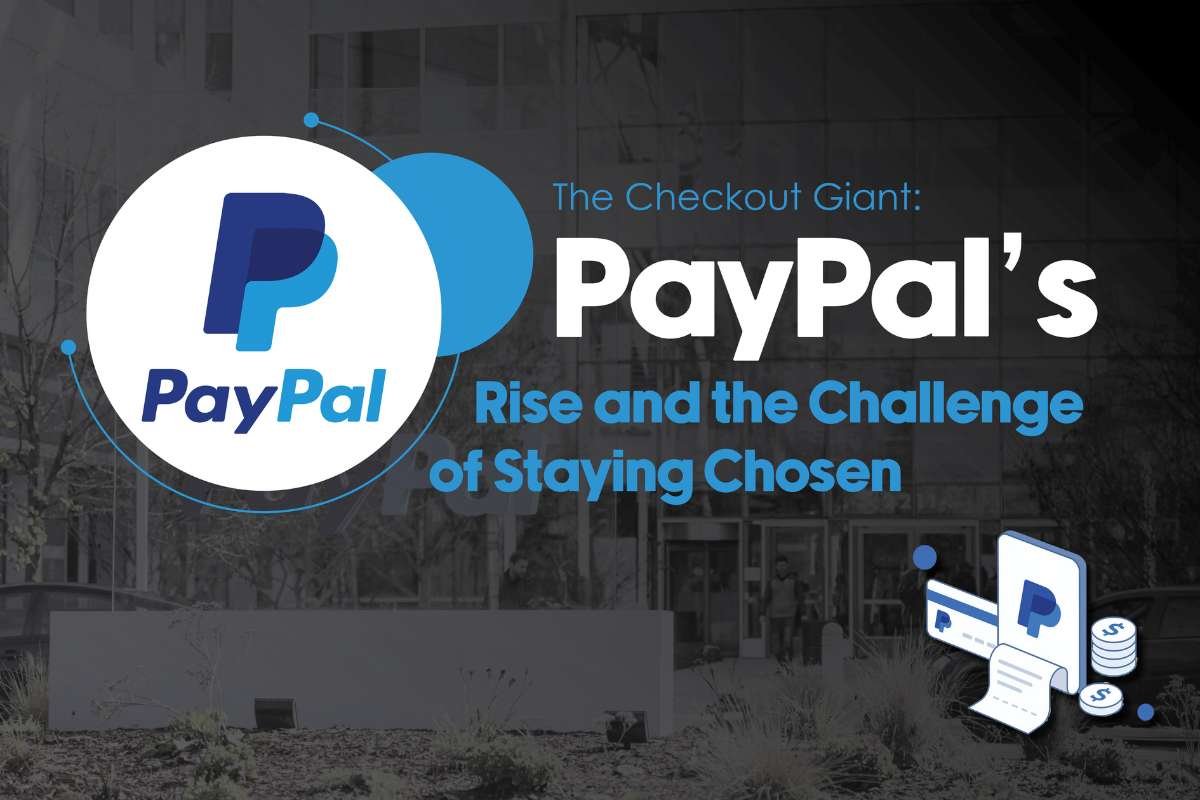A bird darting across the sky as its iridescent plumage catches the sunlight. This is the kingfisher – a symbol of speed and grace. But what if this bird were to leave its natural habitat and venture into a world far from its aquatic domain?
Such is the tale of Kingfisher, the brand. Like its avian namesake, the bird is associated with speed and elegance. Born in the heart of India, this brand quickly soared to national prominence. Yet, much like the bird’s daring flight, Kingfisher’s journey was not without challenges.
This case study delves into the brand’s evolution – Kingfisher Beer to Kingfisher Airlines, exploring how its turbulent waters of the market and financial storms ultimately carved out a niche for itself.
Can a brand, like a bird, truly soar to new heights without ever returning to its roots? Let’s dive into the Kingfisher saga and discover the secrets behind its enduring appeal.
The Birth of a Legend
In the year 1857, a brewing revolution was brewing. Five of India’s most esteemed breweries were united under the banner of United Breweries to create a beer captivating the nation’s palate. Inspired by the classic European pilsner, they sought to craft a beverage that was flavorful and refreshing, perfect for the humid Indian climate.
After months of experimentation and refinement, they struck gold. The resulting beer was a thing of beauty, a harmonious blend of malt, hops, and yeast that tantalized the taste buds. This masterpiece, named Kingfisher beer, quickly gained popularity and became synonymous with quality and enjoyment.
Over a century and a half later, Kingfisher’s legacy endures. It remains India’s most beloved lager, a testament to its timeless appeal. The secret to its enduring success lies in the original recipe, a carefully guarded treasure passed down through generations.
In the 1980s, Kingfisher’s fame began to spread beyond the shores of India. It made its triumphant debut in the United Kingdom and quickly won the hearts of discerning drinkers. From the vibrant bars of Indian restaurants to the bustling sports clubs and premium pubs, Kingfisher’s presence became a familiar sight.
Today, Kingfisher continues to captivate audiences worldwide, attracting new fans with its exceptional taste and enduring quality. As the legend of Kingfisher grows, so too does its reputation as an iconic beer and a symbol of India’s rich brewing heritage.
And the Bird Learned to Fly

Launched in 2005 by the flamboyant businessman Vijay Mallya, Kingfisher Airlines quickly established itself as India’s premier airline. With its luxurious interiors and a fleet of modern aircraft, Kingfisher offered a level of sophistication that was unmatched in the Indian aviation market. The airline positioned itself as a symbol of status and indulgence, catering to discerning travelers who sought a premium experience.
| A Rapid Ascent | Kingfisher’s expansion was meteoric. It rapidly grew to become the second-largest airline in India, offering domestic and international flights to a wide range of destinations. The airline’s ambitious plans included acquiring Air Deccan, a low-cost carrier, and expanding its international network to include destinations in Europe and North America. |
| The Storm Clouds Gather | Despite its initial success, Kingfisher Airlines began to face headwinds. High operational costs, coupled with intense competition in India’s price-sensitive airline market, put a strain on the airline’s finances. The global financial crisis of 2008 further exacerbated these challenges. |
| A Turbulent Descent | As the airline’s financial troubles mounted, Kingfisher Airlines was forced to ground its fleet in 2012. The collapse of the airline had far-reaching consequences, not only for its employees and passengers but also for the broader Indian aviation industry. The airline’s demise left a void in the market for premium air travel, and its failure had a significant impact on the reputation of Indian aviation. |
The Aftermath
The collapse of Kingfisher Airlines also had personal ramifications for Vijay Mallya. The airline’s debts contributed to the financial troubles of his UB Group, and Mallya was subsequently accused of financial fraud and money laundering. He fled India in 2016 and has since been living in the United Kingdom while facing extradition proceedings.
Kingfisher Airlines’ story is a cautionary tale about the perils of unchecked growth and the importance of sound financial management. Despite its initial success, the airline’s downfall highlights the challenges of operating in a highly competitive and volatile industry.

Kingfisher: Beyond the Beer
1. The Mallya Era
Vijay Mallya, the charismatic entrepreneur often dubbed the “King of Good Times,” was the face of Kingfisher for many years. His flamboyant lifestyle, with his ownership of the Force India Formula One team and the highly popular Kingfisher Calendar, helped to cement Kingfisher’s image as a brand associated with luxury and indulgence.
2. The Kingfisher Calendar: A Cultural Icon
Launched in 2003, the Kingfisher Calendar became a cultural phenomenon in India. This calendar featured stunning models in exotic locations and served as a powerful branding tool, reinforcing the “good times” image that Kingfisher had cultivated.
3. Surviving the Storm
Despite the downfall of Kingfisher Airlines and the legal troubles faced by Vijay Mallya, the Kingfisher beer brand has remained resilient. United Breweries continued to be a key player in India’s alcoholic beverage market.
4. A New Chapter
In recent years, Heineken, the global brewing giant, has increased its stake in United Breweries. As of 2021, Heineken controls the majority of the company, marking a significant shift in the brand’s ownership structure. This partnership has provided Kingfisher with access to Heineken’s global resources and expertise, further strengthening its position in the Indian market.
5. A Timeless Classic
Despite the challenges and changes, Kingfisher beer remains a beloved brand among Indian consumers. Its enduring popularity is a testament to its quality, taste, and brand identity that it has built over the years. As Kingfisher continues to evolve, it remains a symbol of India’s vibrant brewing culture and a testament to the enduring power of a well-loved brand.
Strategies and Insights behind India’s Leading Beer Brand

Kingfisher, under United Breweries, dominates the Indian beer market with an impressive market share of 55%. The brand holds a significant lead over competitors like Carlsberg (20%) and AB InBev (15%), positioning itself as a cultural and economic powerhouse in the country’s beverage industry. Here’s a breakdown of its competitive position and strategic insights.
Key Insights:
- Brand Loyalty: Kingfisher’s legacy as one of India’s most recognizable beer brands has allowed it to capture and retain a loyal customer base. With over three decades in the market, Kingfisher has become synonymous with quality beer for Indian consumers, both at home and abroad.
- Diverse Product Range: Kingfisher has expanded its product portfolio beyond its flagship “Kingfisher Premium” and “Kingfisher Strong” brands to cater to evolving consumer preferences. They’ve tapped into the growing demand for light, low-calorie beers, and craft options, ensuring the brand’s relevance across different market segments.
- Market Leadership: As the pie chart illustrates, Kingfisher holds more than half of the market share. This dominance reflects its widespread distribution network, from local taverns to premium hotels, along with its strong branding and marketing efforts.
- Strategic Alliances: Kingfisher’s partnership with global beer brands through United Breweries gives it access to international brewing techniques and allows it to maintain its innovative edge. This has helped the brand continue to evolve in response to global trends.
- International Presence: Kingfisher exports to over 50 countries, reinforcing its global appeal as an ambassador for Indian culture. Its presence in international markets also boosts brand visibility and establishes it as a global player.
Winning Strategies—From Kingfisher Beer to Kingfisher Airlines
Kingfisher’s enduring success can be attributed to a combination of strategic initiatives. The brand has built a robust distribution network, ensuring its products are readily available across India’s vast and diverse landscape. By focusing on youth-centric marketing strategies, Kingfisher Beer has managed to stay relevant to the growing younger population. The introduction of premium variants like Kingfisher Ultra has allowed the brand to tap into the aspirational mindset of India’s rising middle class.
Recognizing the changing tastes of consumers, Kingfisher has also diversified its product portfolio with new flavors and variants, including lighter beers that cater to health-conscious drinkers. Finally, the brand’s commitment to sustainability initiatives, such as investing in eco-friendly packaging and reducing water usage, aligns with global trends and demonstrates its long-term vision.
Kingfisher’s combination of market leadership, innovation, and strategic positioning has cemented its place as the go-to beer brand in India. With its eye on domestic and international growth, it continues to shape the future of the beverage industry.
FAQ’s
1. How did the collapse of Kingfisher Airlines affect the Kingfisher Beer brand?
While the airline’s collapse tarnished Vijay Mallya’s reputation, Kingfisher Beer remained resilient due to its strong brand, quality, and market presence.
2. What role did Vijay Mallya play in Kingfisher’s brand image?
Mallya, known as the “King of Good Times,” helped create a luxurious and aspirational image for Kingfisher through events like the Kingfisher Calendar and Formula One sponsorship.
3. What is the current status of Kingfisher Beer and United Breweries?
Heineken now controls United Breweries, and Kingfisher remains a leading beer brand in India with a focus on sustainability and product diversification.
4. How did Kingfisher maintain brand loyalty after the airline’s collapse?
Kingfisher’s strong brand, quality, and marketing helped maintain loyalty.
5. What role does Kingfisher play in Heineken’s global strategy?
Kingfisher is a valuable asset for Heineken’s expansion in the Indian market, offering a strong brand and distribution network.


















